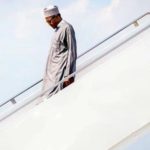The recent development in Zimbabwe is “a matter of concern” for the European Union, European Commission spokeswoman, Catherine Ray, said on Wednesday in Brussels. “We call on all the relevant players to move from confrontation to dialogue with the aim to a peaceful crisis resolution,’’ Ms. Ray said.
She also stressed that “fundamental rights” of citizens and the country’s “constitutional order and democratic governance” needed to be upheld. Also reacting, Germany called for all sides to show restraint in Zimbabwe after the military seized power, saying it is targeting “criminals” around President Robert Mugabe. “We see developments there with concern … The situation there is confusing and unclear,” a Foreign Ministry spokesman told a regular government news conference in Berlin.
South African President Jacob Zuma urged Zimbabwe’s military not to make “unconstitutional changes of government,” hours after the army took control of the capital, Harare. Mr. Zuma, also speaking on behalf of the Southern African Development Community, demanded the military and government “resolve the political impasse amicably,” while calling for “calm and restraint.”
The unfolding political situation in Zimbabwe was of great concern,” Mr. Zuma said.
The United States late Tuesday encouraged its citizens in Zimbabwe to take shelter and said it was closing its embassy to the public amid unconfirmed reports that a coup against President Robert Mugabe was underway. “As a result of the ongoing political uncertainty through the night, the ambassador has instructed all employees to remain home tomorrow,” the embassy said on its website.
“US government personnel have been instructed to shelter in their residences tonight,” it continued, adding that its citizens were advised to “shelter in place” until further notice. There were reports late Tuesday that the military was attempting to depose the president after a day in which tanks were seen heading towards Harare and there was a noticeable increase of troops on the capital’s streets. Tensions have been raised in Zimbabwe since last week when Mr. Mugabe fired his vice president Emmerson Mnangagwa. On Monday, top general Constantino Chiwenga had warned Mr. Mugabe that the army would intervene if the president continued to expel former liberation fighters who supported Mr. Mnangagwa.
(dpa/NAN)



